by Simon Slator
A few months ago, while collecting my son from his swimming lesson, I found myself walking along the school’s corridors and looking at photos of their students’ musical performances. One thing caught my eye: all the boys were holding instruments, while all but one of the girls were holding microphones. It got me thinking — does the music world still hold on to some gender stereotypes where the men learn the instruments, play the music and do all the technical wizardry, while the women stand at the front and sing? Do women generally favour the performing arts over the creative ones? Where were the Jennifer Battens and the Tina Weymouths? Not being a psychologist or sociologist, they were questions I could not answer. I’ll just blame Simon Cowell – it’s easier.
Thinking about this also led me to evaluate the women in my own music collection. Admittedly, there’s not many, and I could go on at length as to why, but they are responsible for a number of albums that can be appreciated universally. So, for your reading pleasure and in no particular order, I offer five albums by female solo artists that really deserve your attention.
(Note: I’ve not included any albums by Kate Bush or Joni Mitchell — those go without saying.)
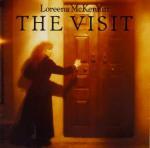 1. The Visit by Loreena McKennitt
1. The Visit by Loreena McKennitt

I’ve heard her referred to as “The Canadian Enya”, which to me seems somewhat inaccurate and undermining. She’s more of a counterpart to a latter-day Peter Gabriel — and given how much I respect Peter Gabriel, that’s some compliment. She may possess a set of pipes that can melt stone, but her fascination with Celtic history and tradition has seen her travel all over the world, soaking up musical inspiration everywhere she goes. The Visit and its two successors form a trilogy of exceptional albums that eschew technology and deviate greatly from the stereotypical Scottish/Irish Celtic sound, to the point where listening to them is like stepping into a museum: fascinating and enlightening. If you’re not moved by the sound of “Bonny Portmore”, see a doctor. Seriously.
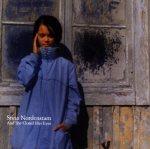 2. And She Closed Her Eyes by Stina Nordenstam
2. And She Closed Her Eyes by Stina Nordenstam

If you watch any of the prime-time TV talent shows, you’d be led to believe that a good female vocalist is defined by her technique — particularly the power, projection and tone … plus whether they can belt out and hold “the money note” without their face turning purple. Stina’s not like that. Her voice is rather cute and innocent, almost like a shy teenager placed in front of a microphone for the first time. It’s little more than a sweet, delicate whisper, so closely miked that it collects every breath and every single nuance. When coupled with the immaculate and uncluttered soundstage (the best I’ve heard outside of Tom Waits), the album feels like an intimate, private performance made especially for you. You can’t help but get taken in by it all.
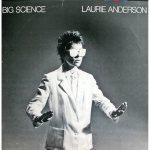 3. Big Science by Laurie Anderson
3. Big Science by Laurie Anderson

One of the most curious wonders of the modern world is how Laurie Anderson, an American multimedia performance artist, could reach No. 2 in the UK Singles chart with an eight minute-long slab of half-spoken minimalism. It was like seeing Kajagoogoo filling in for The Philip Glass Ensemble. Its parent album, itself a modest UK hit, is perfectly personified by its cover: monochromatic, minimalist and highly interpretive. It is, however, quite approachable; her violin work on “Born, Never Asked” and the opening riff of “From the Air” are nothing short of impressive, if you’re musically open-minded.
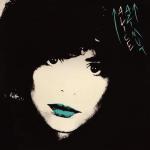 4. Azimut by Alice
4. Azimut by Alice

Up until the late seventies, Carla Bissi — under the stage name of Alice Visconti — was little more than a singer, albeit a damn good one, lending her voice to whatever songs were handed to her. Then she met Franco Battiato, Italy’s maestro of the intellectual and philosophical, whose influence rubbed off on her big-time. She dropped the “Visconti” from her stage name and began composing her own material, at first with some guidance from Battiato and his long-time collaborator, Giusto Pio. But 1982’s Azimut was where she really flew on her own. The similarity to Kate Bush is at times uncanny — most noticeably on “Animali d’America” — but the drama and majesty of the album as a whole, dusted with inspiration from the great Romantic composers, rivals the likes of Kate’s Lionheart and Never For Ever.
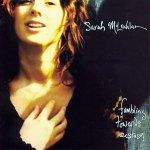 5. Fumbling Towards Ecstacy by Sarah McLachlan
5. Fumbling Towards Ecstacy by Sarah McLachlan

My wife and I differ over which is the best McLachlan album — hers being Surfacing (well, it was the last time I checked), while mine is definitely this one, with Afterglow a close second. Albums with songs based on relationships are, to these ears, quite formulaic and short-sighted, like they’re trying to cast a wide, commercial net by sticking to common experiences and not being too analytical. McLachlan, on the other hand, removes the rose-tinted glasses and takes a leaf out of the Joni Mitchell book of song writing by assuming a comparably mature approach. It’s an admission that, for a relationship to work, it takes positivity, co-operation and compromise. As such, there are no giddy teenaged dating songs, nor is there any jilted “look what you’ve done, you bastard” ranting. It’s refreshing and realistic. Okay, it doesn’t stretch her vocal cords quite as much, but the relaxed sound works well here. The accompanying Freedom Sessions CD is worth hearing just for the late-night, wine-fuelled rendition of the Tom Waits’ classic, “Ol’ 55”.
As you can probably guess, with the exception of Sarah McLachlan, they’re all female artists who occupy the areas on the outer edges of the mainstream, which is usually where I have most the success in hunting for great music; to her credit, McLachlan does set the contemporary bar incredibly high, though, standing shoulder-to-shoulder with the likes of Neil Finn. They’re not mere eye candy, clad in designer gear and performing a carefully choreographed dance routine like the performers you see on TV — such aesthetics are lost when the CD is spinning in your CD player anyway. They are talented musicians who make music of real value that can be appreciated as music.
There really should be more like them.



